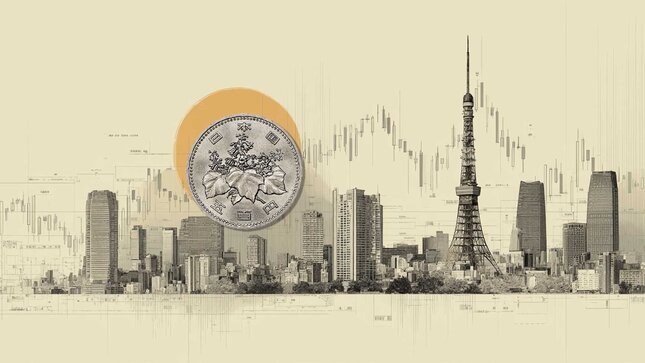The other day @donnelly_brent the author of Alpha Trader and a must follow on Twitter made the following observation, ”In trading, there are times when you should take positions so big they make you feel uncomfortable.
But still in control.
You need to be able to drive the car fast enough to win … But not so fast that you slam into a wall.
Do you generally trade too big, or too small?”
I thought this was an interesting take and a great question because it contains an underlying assumption that many miss. Do you trade discretionary or systematically? If the former, then absolutely Brent is right, if the latter then I think the complete opposite is true.
DIscretionary traders are trading narrative. Most of the time that narrative is fundamental in nature but it can also be technical. The point is that they are trading a very specific story and depending on their level of confidence in the story they should size up accordingly, because great stories are rare and the opportunities are few.
The all-time champ of discretionary trading is George Soros who once famously noted that, ““It's not whether you're right or wrong, but how much money you make when you're right and how much you lose when you're wrong.” Soros of course was wrong a lot, but his single greatest talent was to bet huge when he was right. The quintessential example of that style was the British Pound trade when Soros made one billion dollars ( back when a billion really meant something) in a matter of a few weeks.
Soros was the ultimate probative trader he would poke and poke the market to test his thesis and if the price would go his way he would press the trade with all his might. In the pound battle against the Bank of England, Soros’s fund bet the whole year's profits on that one position and came out a trading legend as result.
However, if you are a systematic trader like yours truly the Soros way is probably the fastest route to ruin. That is because systematic trading tries to capture a completely different edge. Instead of being driven by narrative, systematic trading focuses on market behavior. The idea is that certain types of patterns are so repetitive and predictable that a systematic approach can carve out a positive stream of profits if you can wrap proper stops and targets around the trade.
I trade one primary systematic idea - namely that price will often reverse from sessions highs and lows. There is of course a lot more to it than that, but the basic premise is that in auction based markets mean reversion is far more common than continuity and you can exploit that dynamic if you can structure the setup properly. My setup is traded with a 1:1 risk reward ratio so I only need to be 51% right to have a positive edge.
You should think of systematic trades as factory produced donuts that taste the same - unlike discretionary trades which can be sublime or inedible depending on the day. Therefore it's much better to trade systematic strategies with uniform size. In fact I would argue that trading smaller rather than bigger is always an advantage with systematic trading because often the donut batch can become spoiled (probabilities change in different regimes) and it is much easier to absorb such losses and make proper adjustments when your inventory losses (your equity drawdown) is relatively modest.
Systematic approach relies on the law of large numbers and therefore requires small size to capture a small edge. There is a reason that Ken Griffin's Citadel trades 100 shares of stock a billion times a day for a tenth of a penny and 51% win rate and still makes billions of dollars a year. But that is a far cry from making a billion dollars on one well placed macro bet as done by Soros. Retail traders rarely understand the difference between the two and in their chase of profit often make the dangerous mistake of trading systematic ideas with a discretionary size.
Past performance is not indicative of future results. Trading forex carries a high level of risk, and may not be suitable for all investors. The high degree of leverage can work against you as well as for you. Before deciding to trade any such leveraged products, you should carefully consider your investment objectives, level of experience, and risk appetite. The possibility exists that you could sustain a loss of some or all of your initial investment and therefore you should not invest money that you cannot afford to lose. You should be aware of all the risks associated with trading on margin, and seek advice from an independent financial advisor if you have any doubts.
Editors’ Picks

EUR/USD: US Dollar to remain pressured until uncertainty fog dissipates Premium
The EUR/USD pair lost additional ground in the first week of February, settling at around 1.1820. The reversal lost momentum after the pair peaked at 1.2082 in January, its highest since mid-2021.

Gold: Volatility persists in commodity space Premium
After losing more than 8% to end the previous week, Gold (XAU/USD) remained under heavy selling pressure on Monday and dropped toward $4,400. Although XAU/USD staged a decisive rebound afterward, it failed to stabilize above $5,000.

GBP/USD: Pound Sterling tests key support ahead of a big week Premium
The Pound Sterling (GBP) changed course against the US Dollar (USD), with GBP/USD giving up nearly 200 pips in a dramatic correction.

Bitcoin: The worst may be behind us
Bitcoin (BTC) price recovers slightly, trading at $65,000 at the time of writing on Friday, after reaching a low of $60,000 during the early Asian trading session. The Crypto King remained under pressure so far this week, posting three consecutive weeks of losses exceeding 30%.

Three scenarios for Japanese Yen ahead of snap election Premium
The latest polls point to a dominant win for the ruling bloc at the upcoming Japanese snap election. The larger Sanae Takaichi’s mandate, the more investors fear faster implementation of tax cuts and spending plans.
RECOMMENDED LESSONS
Making money in forex is easy if you know how the bankers trade!
I’m often mystified in my educational forex articles why so many traders struggle to make consistent money out of forex trading. The answer has more to do with what they don’t know than what they do know. After working in investment banks for 20 years many of which were as a Chief trader its second knowledge how to extract cash out of the market.
5 Forex News Events You Need To Know
In the fast moving world of currency markets where huge moves can seemingly come from nowhere, it is extremely important for new traders to learn about the various economic indicators and forex news events and releases that shape the markets. Indeed, quickly getting a handle on which data to look out for, what it means, and how to trade it can see new traders quickly become far more profitable and sets up the road to long term success.
Top 10 Chart Patterns Every Trader Should Know
Chart patterns are one of the most effective trading tools for a trader. They are pure price-action, and form on the basis of underlying buying and selling pressure. Chart patterns have a proven track-record, and traders use them to identify continuation or reversal signals, to open positions and identify price targets.
7 Ways to Avoid Forex Scams
The forex industry is recently seeing more and more scams. Here are 7 ways to avoid losing your money in such scams: Forex scams are becoming frequent. Michael Greenberg reports on luxurious expenses, including a submarine bought from the money taken from forex traders. Here’s another report of a forex fraud. So, how can we avoid falling in such forex scams?
What Are the 10 Fatal Mistakes Traders Make
Trading is exciting. Trading is hard. Trading is extremely hard. Some say that it takes more than 10,000 hours to master. Others believe that trading is the way to quick riches. They might be both wrong. What is important to know that no matter how experienced you are, mistakes will be part of the trading process.
The challenge: Timing the market and trader psychology
Successful trading often comes down to timing – entering and exiting trades at the right moments. Yet timing the market is notoriously difficult, largely because human psychology can derail even the best plans. Two powerful emotions in particular – fear and greed – tend to drive trading decisions off course.


